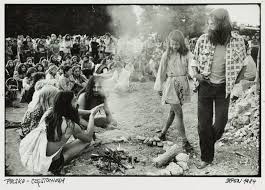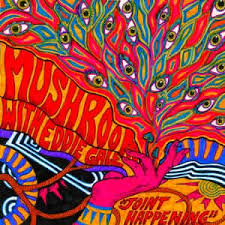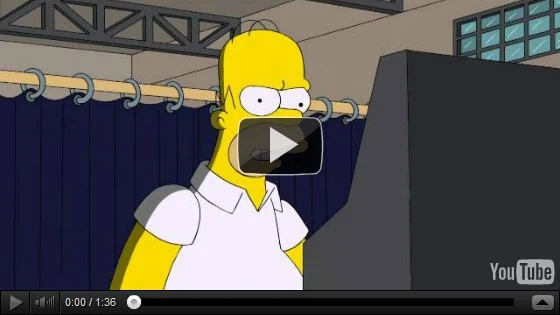
Good Day Humboldt County!
I still hear conversations among baby boomers like myself about how we “sold out” and went “establishment.”
Pretty funny eh? It’s been about 50 years since people danced with flowers in their hair in the parks amid clouds of marijuana smoke.
We all thought we were the original “drop outs” and were really cool customers. We touted free love and sang about expanding our minds on drugs. We re-invented the Victory sign from WWII to mean “Peace,” and flashed two wide spread fingers like it was a secret sign. How naïve we were. How dumb. How idealistic. What dreamers. We all sold out way before we admitted it! Read on:
The Misconception: Both consumerism and capitalism are sustained by corporations and advertising.
The Truth: Both consumerism and capitalism are driven by competition among consumers for status.
“Beatniks, hippies, punk rockers, grunge rats, metal heads, goth kids, hipsters – see a pattern forming here? It goes back farther than these examples, the baton of counter culture – the mantle of anti…whatever the mainstream is doing – it gets passed from generation to generation.
Whether you lived through Freedom Summer or “Jem and the Holograms” – som ewhere in your youth you started to realize who was in control, and you rebelled. You started to discover the paradigms of censorship and consumerism – and they repulsed you.
ewhere in your youth you started to realize who was in control, and you rebelled. You started to discover the paradigms of censorship and consumerism – and they repulsed you.
You needed to self actualize, to find your own way, and you sought out something real, something with meaning. You waved your hand at popular music, popular movies, and popular television. You dug deeper and disparaged all those mindless sheeple who gobbled up pop culture.
Yet, you still listened to music and bought shirts and went to see movies. Someone was appealing to you despite your dissent. If you think you can buy your way to individuality, well, you are not so smart.
Since the 1940s, when capitalism and marketing married psychology and public  relations, the market has been getting much better and more efficient at offering you something to purchase no matter your taste.
relations, the market has been getting much better and more efficient at offering you something to purchase no matter your taste.
See the punk rocker on the left? Yeah, he bought all of those clothes. Someone is making money off of his revolt. That’s the strange paradox – everything is part of the system. There is no such thing as selling out, because there is no one to sell out to.
Every niche opened by rebellion against the mainstream is immediately filled by entrepreneurs who figure out how to make a buck off those who are trying to avoid what the majority of people are buying. In the late 1990s and early 2000s, there were many stabs at trying to thwart this through artistic gesture – “Fight Club,” “American Beauty,” “Fast Food Nation,” “The Corporation,” etc.
The creators of these works may have had the best intentions, but their work still became a product designed for profit. Their cries against consumption were consumed. Michael Moore, Noam Chomsky, Kurt Cobain, Andy Kaufman – they may have been solely concerned with creating art or illustrating academic principles, but once their output fell into the marketplace it found its audience, and that audience made them wealthy.
Joseph Heath and Andrew Potter, both philosophers, wrote a book about this in 2004 called “The Rebel Sell.” It’s available in the United States as “Nation of Rebels.” The central theme of the book is you can’t rage against “the system,” or “the man” or “the culture” through rebellious consumption.
Here’s the conventional thinking most counter cultures are founded upon:
All the interconnected institutions in the marketplace need everyone to conform in  order to sell the most products to the most people. The media through press releases, advertising, entertainment and so on works to bring everyone into homogeneity by altering desires.
order to sell the most products to the most people. The media through press releases, advertising, entertainment and so on works to bring everyone into homogeneity by altering desires.
To escape consumerism and conformity, you must turn your back and ignore the mainstream culture. The shackles will then fall away, the machines will grind to a halt, the filters will dissolve, and you will see the world for what it really is.
Finally, the illusory nature of existence will end and we will all, finally, be real. The problem, say Heath and Potter, is “the system” doesn’t give a shit about conformity. In fact, it loves diversity and needs people like hipsters and music snobs so it can thrive.
For example, say there is this awesome band no one knows about except you and a few others. They don’t have a record contract or an album. They just go out there and play, and they are great.
You tell everyone about them as they build a decent fan base. They make an album which sells enough copies to allow them to quit their jobs. That album gets them more gigs and more fans. Soon, they have a huge fan base and get a reco rd contract and get on the radio and play on “The Tonight Show.”
rd contract and get on the radio and play on “The Tonight Show.”
Now, they’ve sold out. So you hate them. You abandon the band and go looking for someone more authentic, and it all starts over again. This is the pump by which artists rise from the depths into the mainstream. It never stops, and over time it gets faster and more efficient.
Unknown bands are a special sort of commodity. Living in a loft downtown, wearing clothes from the thrift store, watching the independent film no one has heard of – these provide a special social status which can’t be bought as easily as the things offered to the mainstream.
In the 1960s, it took months before someone figured out they could sell tie-dyed shirts and bell bottoms to anyone who wanted to rebel. In the 1990s, it took weeks to start selling flannel shirts and Doc Martens to people in the Deep South. Now, people are hired by corporations to go to bars and clubs and predict what the counter culture is into and have it on the shelves in the cool stores right as it becomes popular.
The counter-culture, the indie fans and the underground stars – they are the driving force behind capitalism. They are the engine.
This brings us to the point – competition among consumers is the turbine of capitalism. Everyone who lives above the poverty line but isn’t wealthy pretty much has no choice but to work for a living doing something which rewards them with survival tokens.
Working as a telemarketer, for example, allows you to have food, clothing and shelter, but doesn’t put you directly in charge of creating, growing or killing those things you need for sustenance. Instead, you trade in tokens for those things. As a result, you have a lot of free time and some leftover tokens.

We don’t directly compete with each other for resources like we did for the millennia before mass production. Before this setup, people were often defined by their work, by their output. The things they owned were usually things either they handmade, or were things other people made by hand. There was a weight, an infusion of soul, in everything a person owned, used and lived in.
Today, everyone is a consumer, and has to pick from the same selection of goods as everyone else, and because of this people now define their personalities on how good their taste is, or how clever, or how obscure, or how ironic their choices are.

As Christian Lander, author of “Stuff White People Like,” pointed out in an interview with NPR, you compete with your peers by one-upping them. You attain status by having better taste in movies and music, by owning more authentic furniture and clothing.
There are 100 million copies of every item or intellectual property you can own, so you reveal your unique character through how you consume.
Having a dissenting opinion on movies, music or clothes, or owning clever or obscure possessions is the way middle-class people fight each other for status. They can’t out-consume each other because they can’t afford it, but they can out-taste each other.
Since everything is mass-produced, and often for a mass audience, finding and consuming things which appeal to your desire for authenticity is what moves these items and artists and services up from the bottom to the top – where it can be mass consumed.
is mass-produced, and often for a mass audience, finding and consuming things which appeal to your desire for authenticity is what moves these items and artists and services up from the bottom to the top – where it can be mass consumed.
Hipsters, then, are the direct result of this cycle of indie, authentic, obscure, ironic, clever consumerism. Which is ironic – but not like a trucker hat or Pabst Blue Ribbon. It is ironic in the sense the very act of trying to run counter to the culture is what creates the next wave of culture people will in turn attempt to counter.
“I think ‘sell out’ is yelled by those who, when they were selling, didn’t have anything that anyone wanted to buy.” – Patton Oswalt
Wait long enough, and what was once mainstream will fall into obscurity. When that happens, it will become valuable again to those looking for authenticity or irony or cleverness. The value, then, is not intrinsic. The thing itself doesn’t have as much value as the perception of how it was obtained, or why it is possessed, does.
Once enough people join in, like with trucker hats or slap bracelets, the status gained from o wning the item or being a fan of the band is lost, and the search begins again. You would compete like this no matter how society was constructed. Competition for status is built into the human experience at the biological level.
wning the item or being a fan of the band is lost, and the search begins again. You would compete like this no matter how society was constructed. Competition for status is built into the human experience at the biological level.
Poor people compete with resources. The middle class competes with selection. The wealthy compete with possessions. If you live in a jungle and forage for food between spear-sharpening sessions, you compete for status with talent or prowess or…something.
If you get a paycheck, someone out there is buying what you are offering. You are selling – they are buying. You sold out long ago in one way or another. The specifics of who you sell to and how much you make – those are only details.” (source)
Time for me to walk on down the road…



